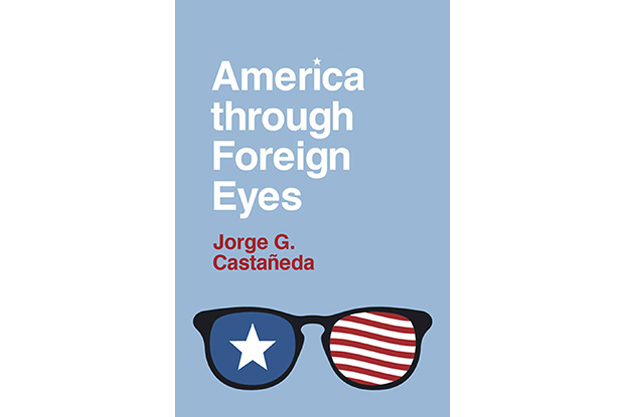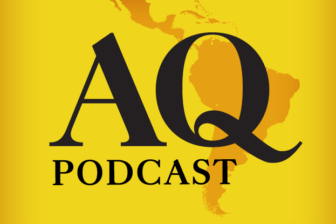This article is adapted from AQ’s special report on closing the gender gap.
How the U.S. views itself inevitably informs its foreign policy. In America through Foreign Eyes, academic and former Mexican Foreign Minister Jorge Castañeda turns a sympathetic outsider’s eye on Americans to offer an intriguingly positive interpretation of where the country is headed. (I will use the term Americans here as he does, while recognizing the debate that surrounds it.)
Castañeda’s book revolves around the idea of exceptionalism, that distinctly American sense of being different and superior. In doing so, it also offers clues to what drives key elements of U.S.-Latin America affairs — and how that relationship may evolve in the years ahead.
Castañeda writes that as a diplomat he never heard high-level U.S. policymakers refer to exceptionalism in conversation. Their lens was always security and perceived U.S. interests. As his book lays out, however, the idea of exceptionalism is central to understanding both domestic and foreign policy. It is based fundamentally, he writes, on hypocrisy and a willingness to ignore inconvenient facts. As Americans we are equal, yet we discriminate; we are the model for democracy, but we put up barriers to voting; we promote tolerance while remaining rigidly conservative in myriad ways. There are many such examples.
In a nicely turned phrase, Castañeda writes that exceptionalism is “a home-baked peculiarity, and it is largely self-deluding, though no doubt immensely self-gratifying.” This leads us logically to U.S. policy toward Latin America.
To Castañeda, the “last hurrah” of exceptionalism is the post-Cold War era. He seems to do his best to view it in glass-half-full terms, even when describing disaster. For example, he notes that since America has so little sense of its own history, foreign policymakers in turn ignore the history of other countries. Combine that with hypocrisy and you get U.S. immigration and drug policy, two keys to its relationship with Latin America.
Both of these have been abject failures for years. Yet Castañeda still sees a pragmatist streak in U.S. policymaking that gives him cause for optimism. On immigration, for example, he writes that “the pragmatic approach … will persist in the United States, even if moments of hysteria may suggest otherwise.” The essential pragmatism to which he refers in this case is the recognition that the U.S. needs immigrant labor.
On this score, I am less convinced about how influential the pragmatists are these days. Too many people believe there is an immigrant “invasion” and that mass incarceration and expulsion are good policy choices. Castañeda sees the seeds of change in demography, particularly the policy effects of the growth of the nonwhite population. We can hope. But even in his own 2008 book, Ex Mex: From Migrants to Immigrants, Castañeda lamented that former President George W. Bush “allowed his right wing to dominate the agenda.” This is a persistent problem, and one that is unlikely to go away.
Castañeda also explains how pragmatism and hypocrisy enter into U.S. drug policy through its commitment to wage war in Latin America and elsewhere even while accepting considerable drug use at home, at least for whites. In short, though U.S. policy does not achieve its goals, policymakers are determined to maintain beatings until morale improves.
Castañeda does not specifically say so, but the same pattern holds for Cuba. Even if demography is at work, since “Republican Cuban-Americans in Dade County, Florida, are passing from the scene,” an obviously failed Cuba policy remains a cornerstone of the Republican Party. President Donald Trump’s reversal on Cuba proved that even commonsense policy shifts can be rolled back, regardless of demography. We could easily also include Venezuela policy, which Castañeda mentions only in passing as a failure because of U.S. “indifference.”
Despite all this, Castañeda remains optimistic and writes of the ability of U.S. culture to absorb foreign influences, which presumably should increase understanding and empathy. There will be resistance, of course. The “constant reinvention of culture” has been accompanied by a smoldering and sometimes explosive resentment.
Castañeda concedes this point, mentioning the “paralysis of American society” that “impedes the country’s international engagement.” That paralysis, as he repeats several times, stems from the voting power of non-college-educated white males. That will change over time, he writes. But demography can be a slow business.
What Americans need, Castañeda believes, is to “acknowledge the decline and end of their difference with the rest of the world.” That means ceasing to consider themselves exceptional, something entirely alien to current political culture. Demography will change the way we look — literally — and could change foreign policy as well. But will it mean we imbibe less of exceptionalism in schools, churches, at home and everywhere else? Castañeda thinks so, despite even the horrors of the Trump era. He believes in us more than many of us believe in ourselves. With luck, this foreign observer is showing us something we’re missing.
__
Weeks is associate dean and professor of political science at UNC Charlotte.







